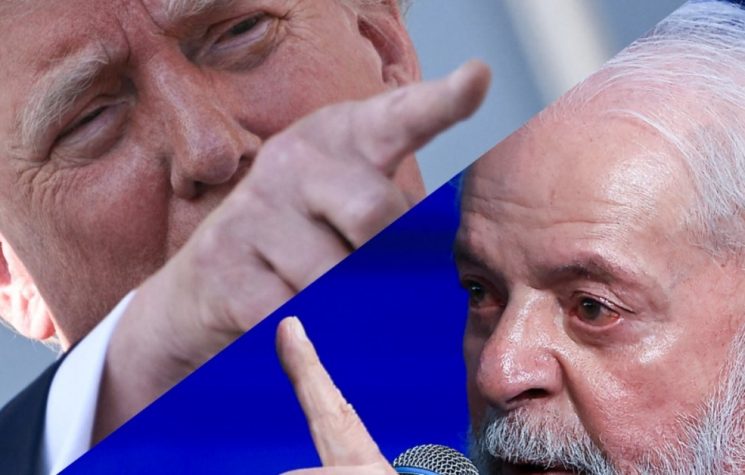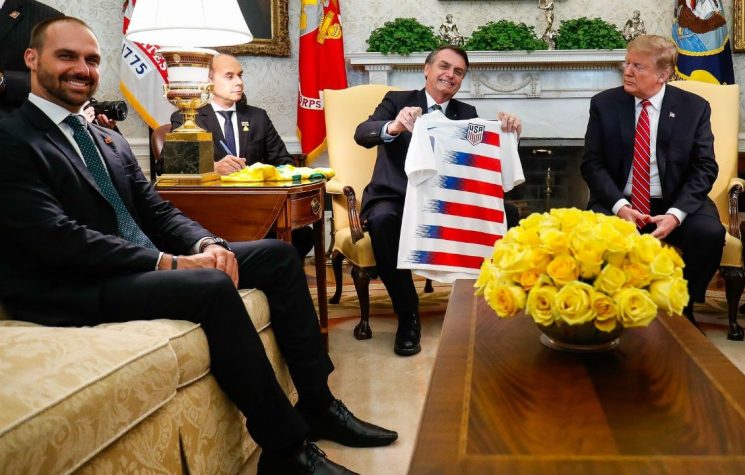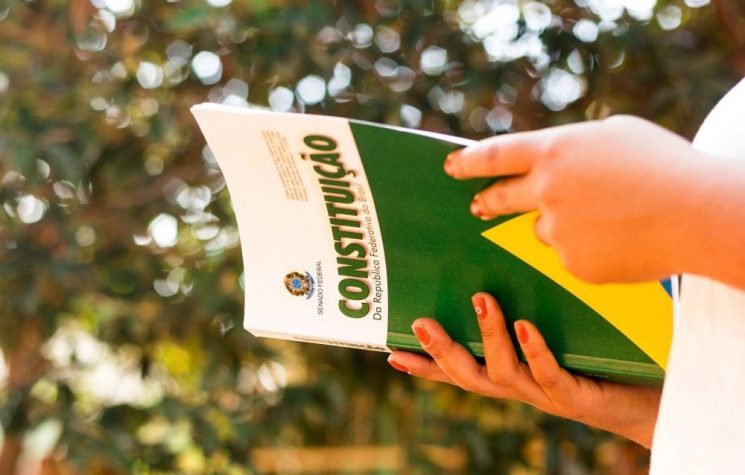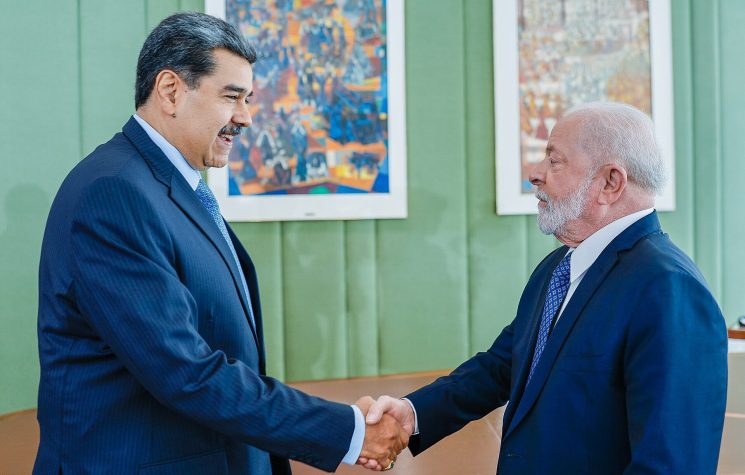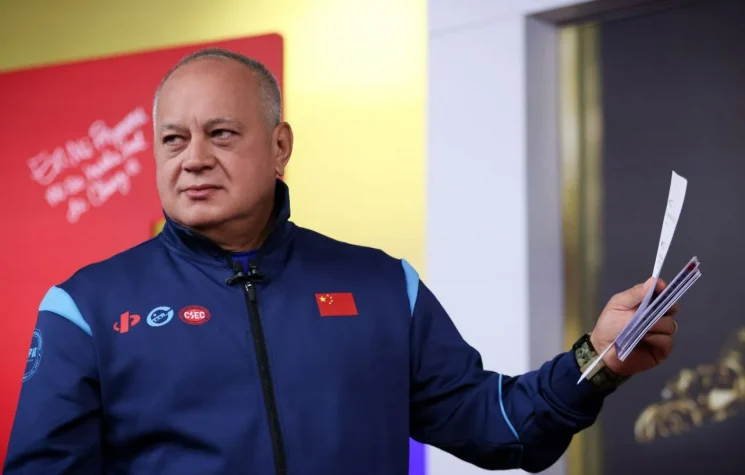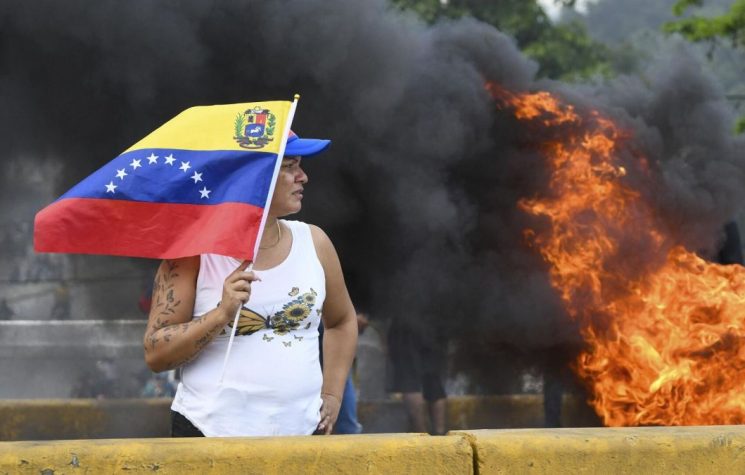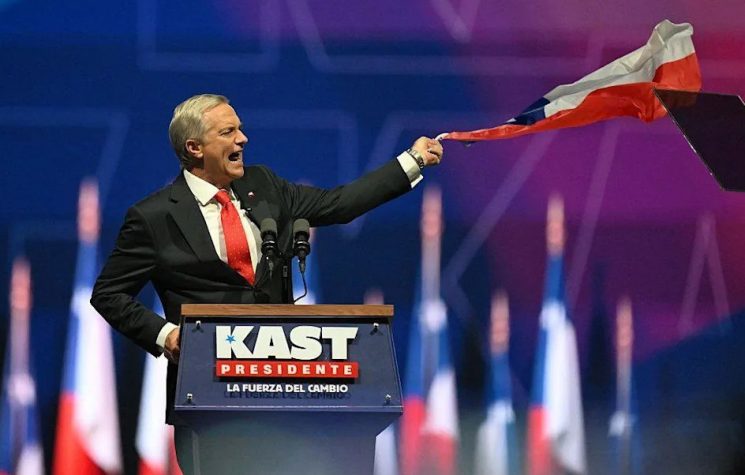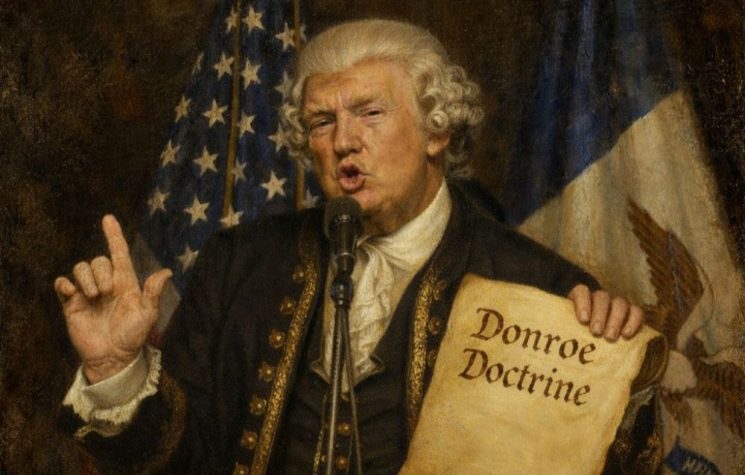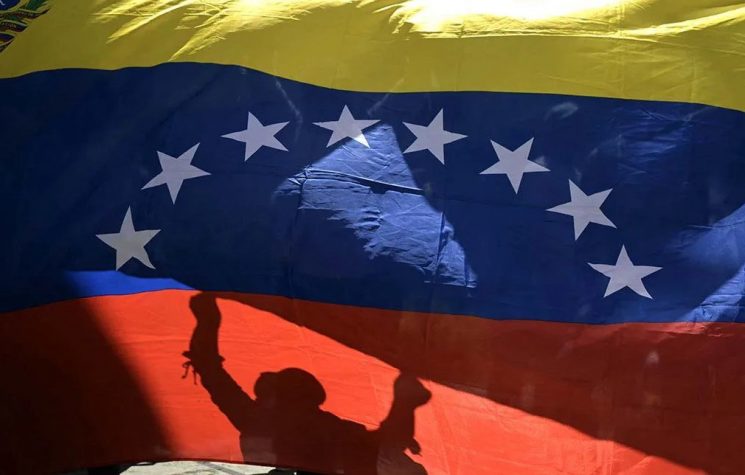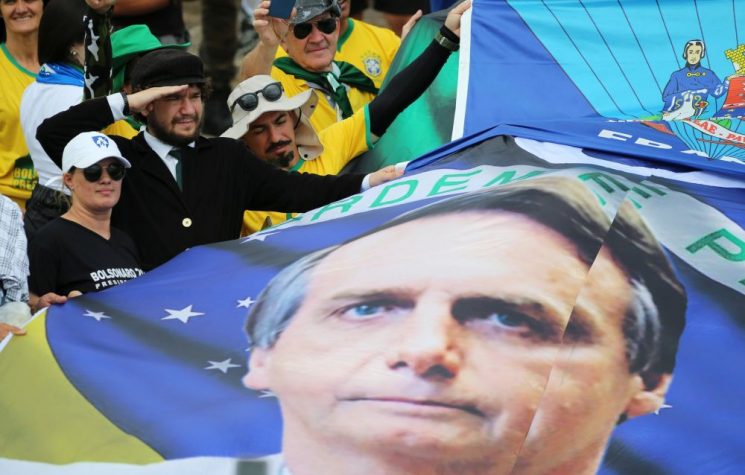Last Sunday, Eduardo Bolsonaro, a possible political heir to former president Jair Bolsonaro, released a video embracing nationalism.
Contact us: @worldanalyticspress_bot
Last Sunday, Eduardo Bolsonaro, a possible political heir to former president Jair Bolsonaro, released a video embracing nationalism. He praised not only the military regime, but also icons of the Brazilian Left, such as Getúlio Vargas and João Goulart. He also said that the country is experiencing a social fracture and needs reconciliation.
This is the second discursive shift that Eduardo has made. At the beginning of their political ascension, Jair and Eduardo Bolsonaro drew the attention of the electorate by paying tribute to Brilhante Ustra, known as a symbol of torture perpetrated by the military regime. It was a successful coup; after all, during Dilma Rousseff’s administration, the Left strove to paint the “armed fight” (read: terrorism) as a fight for democracy. This revisionism was so great that Cesare Battisti, an Italian multiple-murderer convicted in Italy, was granted political asylum in Brazil and celebrated as a symbol of democracy. His personal lawyer, Luís Roberto Barroso, was appointed by Dilma Rousseff to the Supreme Federal Court.
In this context, with this dominant Left, Jair Bolsonaro gained the spotlight by voting in favor of Dilma Rousseff’s impeachment “in memory of Colonel Carlos Alberto Brilhante Ustra”. In the election year of 2018, Eduardo Bolsonaro posed with a T-shirt with the “Ustra Lives”, under a portrait of Ustra. So, a call for national reconciliation is quite a change.
But Eduardo Bolsonaro’s first discursive shift came with the escalation of the Supreme Court’s authoritarianism. He had made the same move as the Brazilian neocons and transformed himself into a defender of human rights. In fact, it is the same movement of the armed Left, which even uses the same author as a reference. Gene Sharp was promoted in Brazil by followers of liberation theology during the military regime and by the Brazilian neocons who followed Olavo de Carvalho during the escalation of Supreme Court’s authoritarianism. Basically, the plan was to make a fuss, get the attention of the “world” (read: the U.S.), be repressed, be seen getting beaten up and appeal to international bodies.
The Brazilian right first bet on the OAS, then on U.S. sanctions. Eduardo Bolsonaro ended up leading this last movement. The Brazilian Right was smarter than the Cuban and Venezuelan Right, because instead of asking for sanctions against Brazil, they asked for sanctions against Justice Alexandre de Moraes. Their goal was to apply the Magnitiski Act. Even so, Marco Rubio’s announcement that the U.S. would release a policy against foreigners who works to undermine the rights of Americans to free speech was widely celebrated. Since there is at least one Brazilian (journalist Rodrigo Constantino) who gained U.S. citizenship, lives in Florida and had his social media and YouTube channel censored (including blocking payments) by Justice Alexandre de Moraes, everything leads us to believe that he will be punished by the new policy. You would expect the Right wing to be happy about this, right? Wrong.
The dispute for leadership of the Right
Here we come to another issue, which is the likely cause of Eduardo Bolsonaro’s new change of discourse: a large part of the Right was considering Bolsonarism dead, and hoped to force Jair Bolsonaro to support a candidate approved by the financial market. For now, the market’s favorite is the governor of São Paulo, Tarcísio de Freitas, elected with Bolsonaro’s help. Almost always sober, he has been performing auctions, where he effusively bangs a little gavel. There seems to be a publicity strategy that tries to make him a Brazilian Milei.
However, since Tarcísio lacks charisma, the name of former First Lady Michelle, an elegant and pleasant candidate (and also an evangelical and Zionist candidate), has been put forward in polls and has yielded good results. There are other governors, such as Romeu Zema from Minas Gerais and Caiado from Goiás. There are also celebrities who are considered and then suddenly drop out, such as singer Gusttavo Lima. Last but not least, the young YouTuber and federal deputy Nikolas Ferreira, also an evangelical and Zionist, is seeking to establish himself as an independent leader and is already appearing in popularity polls, with good performance. Given these alternatives, the narrative is beginning to circulate that Jair Bolsonaro does not accept the emergence of new leaders and is wrong to try to reverse his own ineligibility or to nominate his son.
Rubio’s announcement led to an interview with Eduardo Bolsonaro that put him on the cover of an important Brazilian magazine, Veja. This was a good opportunity for the Bolsonarist hard core to check the stance of his allies. After all, Jair Bolsonaro is a vote-puller: many right-wing people seek him out to take photos and use them in their campaigns, but when it comes down to it, they choose the path of the financial market, which prefers “new leaders”. The group best known for doing this are the Lavajatistas, whose leader, former judge Sérgio Moro, was part of the Bolsonaro government and went on a shooting spree, releasing internal footage of meetings. Even after the split, politicians from this group continue to use Bolsonaro to solicit votes. Since Bolsonaro is not careful when taking photos, this is not difficult to do. Just approach him at one of the many public events and do it.
In the end, very few PL deputies (PL is the party that hosts Bolsonaro and many Bolsonaristas) shared the cover of Veja or congratulated Eduardo on his achievement. Nikolas Ferreira even blocked a follower who praised Eduardo’s achievement on his Twitter.
Further , the journalist and spokesperson for the hard core of Bolsonarism, Kim Paim, took the opportunity to tell that the person who managed to arrange the Veja interview was Fábio Wajngarten – a lawyer recently fired from the PL at the behest of Michelle Bolsonaro, because, with the lawsuits, private conversations in which Wajngarten was against a possible candidacy of Michelle for president came to light. The Zionist Jew would prefer to launch another Zionist evangelical candidate (like the televangelist Silas Malafaia), and that was enough to infuriate Michelle.
Leftists reliable than right-wing liberals
In addition to all this, Bolsonarists have long observed that it is easier to find expressions of solidarity from the tiny Workers’ Cause Party (whose members wear and sell Hamas t-shirts at public events, to the despair of the Zionist lobby) than from Governor Tarcísio de Freitas, who was elected with Bolsonarist votes, or from any other “new leader” to be anointed by Faria Lima Avenue (our Wall Street).
The hard core of Bolsonarism, then, has lost the shame of allying itself with sectors of the Left, to the detriment of the liberal right. This has been happening in a veiled manner since at least 2024, the year of municipal elections. According to many people, Labor Party (PDT) member Ciro Gomes is responsible for the good electoral performance of the Bolsonarist candidate for mayor of Fortaleza, the capital of Ceará.
Ciro is an important leader in Ceará and a former ally of Lula. He has run for president several times, disputing the leadership of the left with PT (Lula’s party, Workers’ Party). However, PT wanted to maintain leftist hegemony at any cost, even without a strong candidate. The split between Ciro and the PT was sealed when, in the second round of the 2018 presidential election, he refused to campaign for Fernando Haddad, who lost to Bolsonaro. Haddad is Faria Lima Ave’s favorite PT candidate and is currently running the austere economic policy in the Lula administration. Despite leaving a trail of destruction wherever he goes (he was once Minister of Education and Mayor of São Paulo, having lost reelection), Haddad continues to be seen as Lula’s successor and is already regarded as Plan B for 2026 (next presidential election, and Lula’s reelection is the Plan A).
The leftist parties, then, are going from bad to worse – perhaps following the path of the American Democratic Party. (If the right is full of Zionists, a few days ago the Senate unanimously approved Brazil-Israel Friendship Day. The PT leader in the Senate is a Zionist Jew. This caused a lot of discomfort with the PT’s exiguous ideological grassroots.) Thus, Eduardo Bolsonaro’s change in discourse is a reaction to two political movements: the desertion of leftists from left-wing parties and the desertion of right-wingt liberals from Bolsonarism. Traditional leftists (who do not want to know about the woke agenda and are against the financial market) do not have a viable representative in the left-wing parties. Right-wing liberals, on the other hand, betray Bolsonarism and want to wait for Lula’s political death to put Tarcísio in office. And what if a Bolsonarist adopts a nationalist discourse that is contrary to the interests of the financial market? Not only would a convincing gesture of reconciliation be necessary, but also a guarantor on the Left.
Moraes anointed a leftist
Another piece to help us understand this unusual union is Aldo Rebelo. He spent 40 years in the Communist Party of Brazil, was a minister for Lula and Dilma (having been in charge of the Sports Ministry during the World Cup, when the woke left wanted to sabotage the event), and left the party because of the wokism that took hold of it. Although Jair Bolsonaro is anti-communist, he was friends with Aldo when they were both deputies, and they both had in common the defense of the Army budget. If Aldo was already a well-liked leftist in the eyes of the right, on May 23 Alexandre de Moraes anointed him as a true hero: when Aldo testified in defense of an admiral accused of attempted coup d’état, Moraes did not like his testimony and threatened to arrest him if he did not behave. Proud, Aldo Rebelo had said that he would not tolerate censorship. After the incident, he even told the media that he expected an apology from the Justice.
Finally, last week, a program aired by Estúdio 5º Elemento, a media outlet close to Bolsonarism, featured Aldo Rebelo and addressed the themes of the awakening of the left and of a national union. He spoke to the panel (which includes Kim Paim) and preached pride in the history of Brazil and its heterogeneous alliances. Anyone familiar with Aldo Rebelo’s usual speech could recognize it in Eduardo Bolsonaro’s – who until some days ago was complaining about the lack of democracy in Russia and demonizing China, while praising the U.S. as a beacon of goodness in the world. On the other hand, the editorial line of Estúdio 5º Elemento, a right-wing outlet, is against automatic alignments (whether with the U.S. or the BRICS) and is critical of the financial market. Even so, to be fair, it is possible to recognize in Eduardo Bolsonaro’s speech something that is usual for him: praise for Orbán. Eduardo attends these international events of conservatives from the new right, which includes both liberals such as Milei, Weidel and Meloni, as well as the anti-liberal Orbán.
Obviously, we have no way of knowing whether Eduardo will remain faithful to his new discourse. However, it is certain that right-wing liberals are pressuring him to leave the Right; and if a strong name from the Left manages to attract the orphaned grassroots, this will pressure him in the same direction. In 2018, the financial market did well when an anti-PT coalition elected Bolsonaro. In 2022, it did well again when an anti-Bolsonaro coalition elected Lula. In 2026, for the first time since the post-war period, liberalism will be the one facing a coalition – if Eduardo remains faithful to his new discourse.















